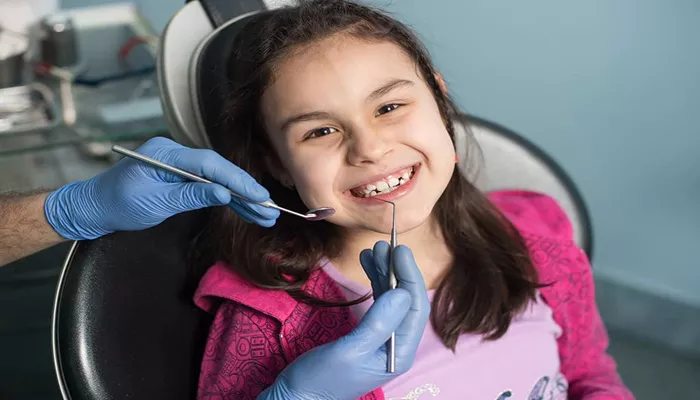Maintaining oral health is crucial for children, as it sets the foundation for their overall well-being. Proper dental care not only ensures a healthy smile but also contributes to a child’s confidence and self-esteem. One of the most important aspects of dental care is regular teeth cleaning, which helps prevent cavities, gum disease, and other oral health issues. This article will explore the appropriate ages for children to begin professional teeth cleaning, the importance of establishing good oral hygiene habits early on, and the role of parents in this process.
The Importance of Early Dental Care
The American Academy of Pediatric Dentistry (AAPD) recommends that children visit a dentist by their first birthday or within six months of their first tooth eruption5. This early visit is essential for several reasons:
Establishing a Dental Home: Early visits help create a comfortable relationship between the child and the dentist, making future visits less intimidating.
Preventive Care: Regular check-ups allow for early detection of potential dental issues, which can be addressed before they become serious.
Education: Parents receive guidance on proper oral hygiene practices to implement at home.
Age Stages for Teeth Cleaning
0-1 Year: Early Care Begins
Even before the first teeth emerge, parents should start caring for their child’s gums. After feedings, use a soft cloth or gauze to wipe the gums gently. This practice helps remove bacteria and prepares the child for future oral hygiene routines.
First Dental Visit: Schedule an appointment with a pediatric dentist by the first birthday or within six months after the first tooth appears.
see also: How Common Is It to Be Born Without Wisdom Teeth?
1-3 Years: Introduction to Brushing
By age one, most children will have their first teeth. At this stage, parents should begin using a soft-bristled toothbrush with water and a small smear of fluoride toothpaste.
Brushing Routine: Brush twice daily—once in the morning and once before bed.
Supervision: Parents should supervise brushing until the child is about 7 years old to ensure thorough cleaning.
3-5 Years: Establishing Independence
By age three, children typically have all 20 primary teeth. This is an ideal time to reinforce good brushing habits and introduce flossing if teeth are touching.
Flossing: Begin flossing when teeth start to touch, usually around age 3 or 4.
Encouraging Independence: Allow children to practice brushing while parents follow up to ensure proper technique.
6-11 Years: Transition to Permanent Teeth
Around age six, children begin losing primary teeth and gaining permanent ones. This transition period requires extra attention to oral hygiene.
Professional Cleanings: Children should start receiving professional cleanings every six months during this stage.
Brushing Technique: Emphasize brushing along the gum line and back teeth where cavities are common.
12-18 Years: Adolescent Oral Health
By age twelve, most children will have all their permanent teeth except for wisdom teeth. During this time, it’s crucial to encourage independence in their oral care routine.
Continued Supervision: Parents should still check in on their teen’s brushing habits and encourage regular dental visits.
Dietary Awareness: Educate teens about how diet affects dental health, especially regarding sugary snacks and drinks.
The Role of Pediatric Dentists
Pediatric dentists specialize in treating children’s dental needs. They provide not only cleanings but also preventive care like fluoride treatments and sealants that protect against cavities5. Their training enables them to handle the unique challenges that come with treating young patients.
Benefits of Professional Cleanings
Regular professional cleanings have numerous benefits:
Cavity Prevention: Removing plaque and tartar buildup reduces the risk of cavities.
Healthy Gums: Cleanings help prevent gum disease by removing harmful bacteria.
Education: Dental hygienists can teach children about proper oral hygiene techniques during visits.
Conclusion
Establishing a routine for dental care from an early age is essential for maintaining children’s oral health. Parents play a vital role in this process by initiating early dental visits, supervising brushing, and encouraging good habits as their children grow. By following the recommended guidelines for teeth cleaning at various stages of development, parents can help ensure that their children enjoy healthy smiles for years to come. Regular check-ups and professional cleanings are not just about maintaining teeth; they are an integral part of fostering overall health and confidence in children as they grow into adulthood.
Related topics:

